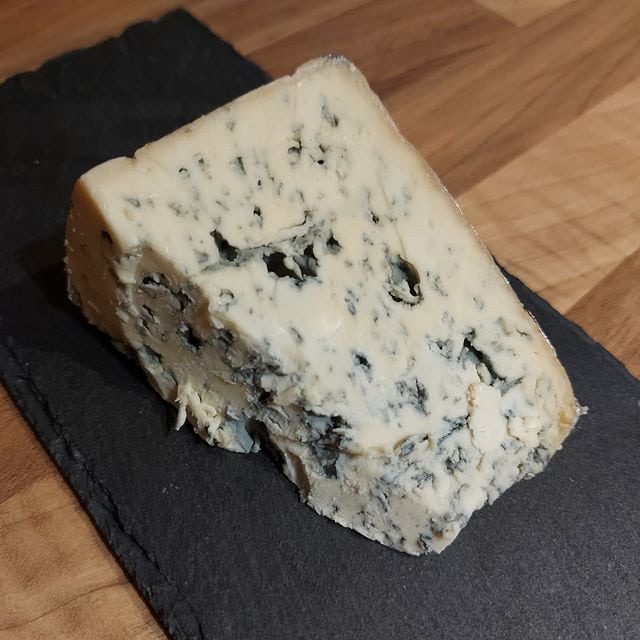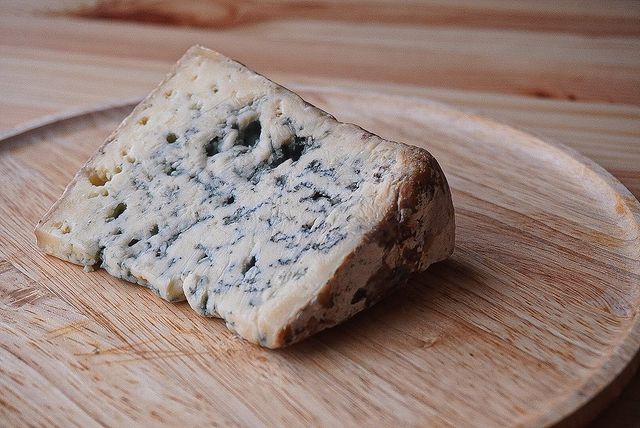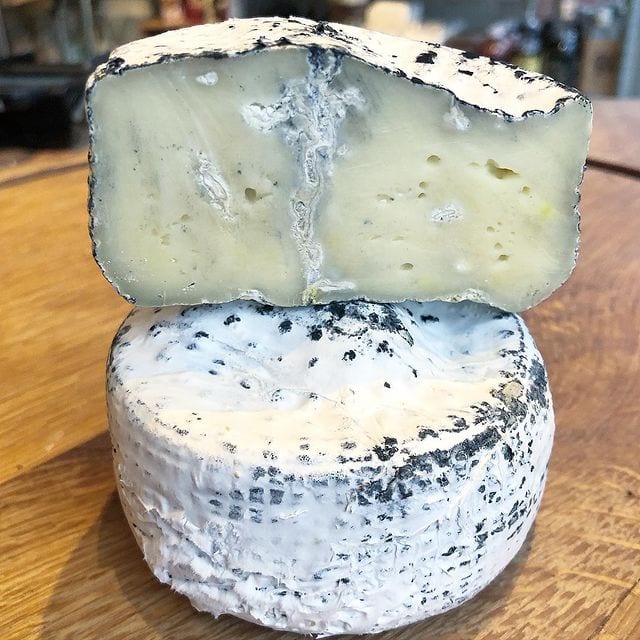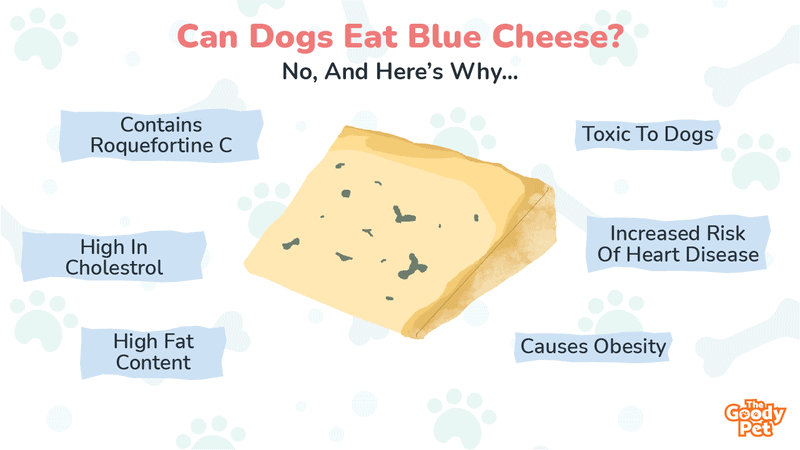You must have heard fellow dog owners talk about feeding their dogs cheese, so you must be wondering if you can feed your dogs cheese too. Your favorite is blue cheese, and you’re wondering if it’s alright for you to share. Blue cheese has a reputation for being beneficial to humans as it contains loads of nutritional value. But is it actually good for your pup?
No, your doggie should not eat blue cheese. Consumption, even in small quantities, will make your furry friend sick, especially if there is a pre-existing health condition. The truth is that the mold that gives blue cheese its signature aroma and flavor can be harmful, even dangerous if eaten by dogs.
Blue cheese is a general classification of cheeses that have had cultures of the mold Penicillium injected into them.
In this article, we’ll explore why you should avoid feeding your dog with blue cheese, what makes blue cheese poisonous, how blue cheese affects your dog, how much blue cheese is too much, and what cheese you can feed your dog instead but before then, let’s see if dogs can have blue cheese.
Can My Dog Have Blue Cheese?

No, your dog should never have blue cheese.
Blue cheeses, like Stilton, are made using fungus, which produces Roquefortine C – a substance that dogs can be sensitive to and can cause fever, vomiting, diarrhea, and even seizures. This substance causes your dog to be ill, ultimately causing a visit to the vet.
Some dogs have an allergy to milk protein or lactose intolerance (a digestion issue). Dogs are susceptible to these allergies because of their digestive system and the various enzymes they produce when digesting. Eating blue cheese can cause these allergic reactions in your dog.
Blue cheese also contains a high amount of cholesterol which is not good for your dog. By giving your pup blue cheese, you are increasing the chance of getting your pup obese, leading to heart disease and diabetes.
Are There Benefits Of Eating Blue Cheese To Dogs?
While blue cheese contains a lot of nutritional benefits and is very healthy, they are only limited to humans and should not be given to your dog. The contents used to make blue cheese can make your dog sick and are not good for them.
Blue cheese is also high in fat content, which is not advisable for your dog as its overconsumption can lead to obesity.
Is Blue Cheese Bad For Dogs?
Yes! Blue cheese is bad for dogs.
Ultimately, anything that can get your dog sick is not good for them. Blue cheese falls in this category due to its Roquefortine C content which is highly sensitive to dogs and can lead to illnesses such as vomiting, diarrhea, and even fever.
What Happens If My Dog Eats Blue Cheese?

Your dog can react to eating blue cheese by vomiting, fever, diarrhea, and possibly seizures.
Blue cheese contains mold, and while it is not toxic to humans, it is not the right food for your dog. If your dog ingests blue cheese, it can cause stomach upset, diarrhea, and vomiting.
Apart from this, you may notice rapid bodyweight gain in your dog due to the high cholesterol content contained in blue cheese.
What To Do If Your Dog Eats Blue Cheese
As a dog owner, it can be scary when you find out that your dog has mistakenly eaten a chunk of blue cheese. If this happens, you need to be calm and handle the situation with care.
First, you should examine the quantity of blue cheese your dog has ingested. If it is a small quantity, you might have to wait and see the reaction of the cheese in your dog. If you notice symptoms of diarrhea, vomiting, or stomach upset in your dog, thenyou should consult a vet.
However, if after examination you discover that your dog has eaten a huge chunk of cheese, you should not hesitate totake your dog to the vet since blue cheese is known to be dangerous to dogs.
Can Dogs Eat A Small Amount Of Blue Cheese?
No, your doggie should not eat blue cheese, even in small amounts.
A small amount of blue cheese can cause symptoms in your dog, but the severity increases with an increase in the quantity fed. Always avoid giving your dog blue cheese to prevent them from getting ill.
What Is The Safest Cheese For Dogs?
Any cottage cheese, Mozzarella, or soft goat cheese is great for your furry friend. Of all three, cottage cheese is often preferred due to its low lactose, sodium, and fat content, which reduces the chances of your doggie reacting poorly.
Cheese also has negative effects when consumed in large quantities. If your dog eats cheese, the risk involved is unnecessary weight gain that can lead to obesity and the possibility of stomach upset due to lactose intolerance.
Are Dogs Allergic To Cheese?
No, dogs are not allergic to cheese, but they are to blue cheese.
Dogs are not allergic to cheese and can eat them without a problem aside from the fact that cheese contains high fat and it can induce obesity in your dog.
However, not all cheese is good for your dog. Varieties such as blue cheese are very dangerous and can cause allergic reactions when consumed by your furry friend.
Some dogs may be highly lactose intolerant which would lead to severe intestinal upset after eating blue cheese. In this case, you should not feed your furry friend blue cheese or any foods such as whole milk or processed cheese, which can cause stomach upsets.
Cheese has its health benefits, so you may still be hesitant about completely canceling it out of your dog’s diet. In this case, speak to your veterinarian concerning the situation as to whether feeding your dog cheese in small quantities is an option or it should be ruled out completely.
If your dog is overweight, has kidney problems, or is lactose intolerant, you should find something else to use as a treat.






